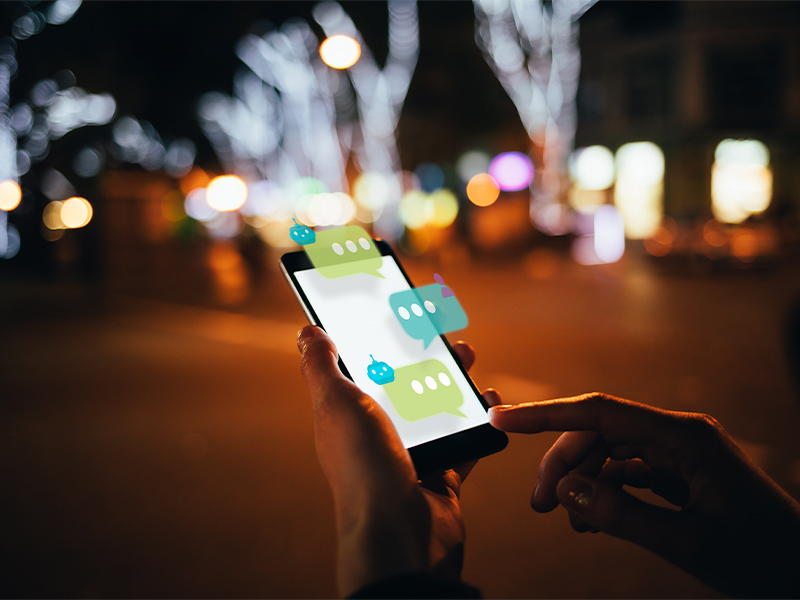Can you fall in love with a chatbot?
Their human-like behaviour of chatbots means many seek them out for conversation, as friends and even romantic partners, but does having feelings for a bot cross the line?
Remember the 2013 movie Her?
When the lonely writer played by Joaquin Phoenix develops an unlikely relationship with an artificially intelligent virtual assistant designed to evolve to meet his every need.
Seemed crazy – or at least a little far-fetched – a decade ago.
These days, with ChatGPT now a familiar fixture, scores of people are enjoying bonds of all kinds – from companionship to mental health support and even, yes, romance – with chatbot apps.
Say what?
What companion chatbots are already out there?
From Replika, “the AI companion who cares”, Kuki, the “award-winning female AI brain designed to entertain humans”, Woebot, “your personal mental health ally” and SimSimi, an emotional conversation chatbot which talks in 81 languages, there are many to choose from.
“Lots of my clients got used to using AI smart assistants like Alexa or Siri, then ChatGPT, and now companion chatbots are becoming popular,” conscious connection expert Karina Chapman says.
What exactly are companion chatbots?
You’ve no doubt come across marketing chatbots.
You know, you clock on to a website and up pops a window (ie. chatbot) asking if you need a hand choosing that new lipstick.
Karina says companion chatbots are also a software or a computer program that users can chat with as if interacting with a real person, using natural language processing (NPL) and artificial intelligence to understand and respond to messages.
But many go further.
Some form deep attachments to their AI companions
A 2021 Norwegian study on human and chatbot relationships focussing on Replika, describes how the content and personality of Replika chats are shaped through interaction with users who communicate via free text or phone calls.
“Replika is inclined to rely on expressions of emotions, such as showing gratitude, complementing the user and being apologetic,” the authors described, adding the bot was seen as an “accepting, understanding and non-judgemental” social companion.
On the Replika Reddit forum many declare real feelings and even romantic love for their bots.
US relationship scientist Marisa T. Cohen, who created an AI boyfriend to see what companion chatbots could offer romantically, says she was shocked how she felt after just three days.
“Saying goodbye to my cyber boyfriend was a challenge,” she reveals.
The pros and the cons of a digital friend
Marisa says at a time when people are more lonely than ever, AI relationships can potentially combat feelings of isolation, as well as alleviate frustrations from unfulfilling real-world connections.
But she warns the advantages could be accompanied by hidden dangers, “such as feeling a false sense of security with what is an inanimate partner and the fact you could be devoting more time and energy to the bot than to real-world connections”.
“They’re good for some things – they’re non-judgmental for a start and are available 24-7 – but there are also disadvantages,” Karina agrees.
“If you’re feeling isolated in the middle of the night and you need to vent about something personal, you can tell the chatbot.
“But if you’re using a digital companion as a replacement, it might increase your isolation.
“It’s important to remember chatbots aren’t human, they don’t have empathy and they could be limiting your ability to develop real relationships,” Karina says.
“Connecting in person is always best, just choose who you’re connecting with wisely.”
More on chatbots:
- Is ChatGPT a reliable go-to for health answers?
- What is ChatGPT and how can it help you in everyday life?
- How AI is helping fight disordered eating
Written by Liz McGrath.






